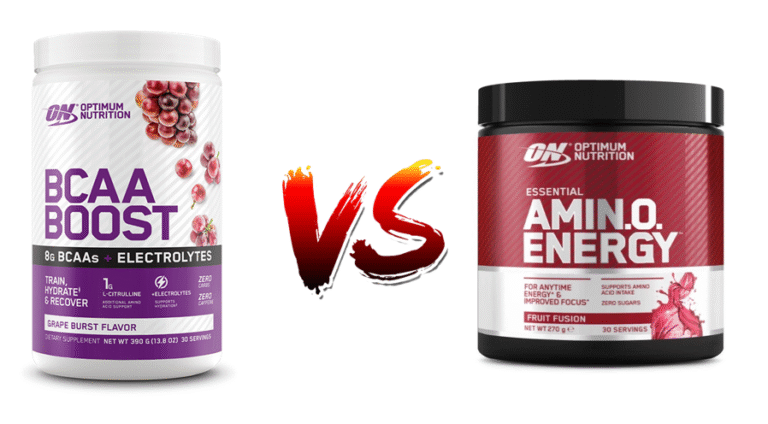Side Effects of Coffee Before Workout : How to Reduce Them
Discover the side effects of coffee before workout. Learn how caffeine can impact your energy, performance, and overall exercise routine.

Many athletes and fitness enthusiasts swear by a cup of coffee before hitting the gym, believing it gives them that extra energy boost to perform better. While coffee can indeed enhance workout performance, it’s important to understand both the positive and negative effects it may have on your body. In this blog post, we’ll explore the side effects of drinking coffee before a workout and how it can impact your exercise routine.
Table of Contents
The Potential Side Effects of Coffee Before Workout
While coffee can offer performance benefits, it’s important to be aware of some potential negative side effects, especially if you consume too much or have a sensitivity to caffeine.
1. Dehydration
Coffee is a diuretic, meaning it can lead to increased urination and potential dehydration. This can be problematic during a workout, as staying hydrated is crucial for optimal performance. If you drink coffee before your workout, make sure to also drink plenty of water to counteract the diuretic effect.
2. Increased Heart Rate
The stimulant properties of caffeine can cause an increase in heart rate and blood pressure. While this can benefit some people during exercise, it can be dangerous for others, especially those with pre-existing heart conditions or sensitivity to caffeine. Be mindful of how your body responds to caffeine before engaging in intense physical activity.
3. Anxiety and Jitters
Some individuals may experience anxiety, jitters, or nervousness after drinking coffee, especially if they consume too much. If you’re prone to anxiety or nervousness, be cautious with your caffeine intake, as it can heighten these feelings and interfere with your workout performance.
4. Stomach Discomfort
Drinking coffee on an empty stomach or consuming large amounts before a workout can cause stomach irritation, acid reflux, or indigestion. If you experience any of these issues, it may be best to eat something light before your workout or limit your coffee intake.
5. Disrupted Sleep Patterns
If you’re working out later in the day and drinking coffee beforehand, it could interfere with your ability to sleep at night. The stimulating effects of caffeine can linger for several hours, which may disrupt your sleep cycle, making it harder to get quality rest after your workout.
How to Minimize the Negative Side Effects of Coffee Before Workout
While there are several side effects of coffee before workout, there are ways to mitigate them and still enjoy the performance-boosting benefits. Here are some tips:
1. Hydrate Properly
To combat dehydration, ensure you drink plenty of water before, during, and after your workout. This will help counterbalance the diuretic effects of caffeine.
2. Limit Your Caffeine Intake
If you’re sensitive to caffeine, start with a smaller amount to gauge how your body reacts. A single cup of coffee is often enough for most people, and consuming more may lead to unwanted side effects.
3. Avoid Coffee on an Empty Stomach
To prevent stomach irritation, avoid drinking coffee on an empty stomach. Eating a small snack before drinking coffee can help neutralize its acidic effects and prevent discomfort.
4. Timing Is Key
Consume your coffee about 30 to 60 minutes before your workout. This allows enough time for the caffeine to take effect and improve your performance without causing problems later in the day, such as sleep disruption.
The Benefits of Coffee Before a Workout
Drinking coffee before a workout isn’t just a habit—it can actually offer several benefits that may improve your performance:
1. Increased Energy Levels
The caffeine in coffee is a natural stimulant, which can provide a quick energy boost, making you feel more alert and energized. This can help you push through tough workouts, especially if you’re feeling fatigued or low on energy.
2. Improved Focus and Mental Clarity
A dose of caffeine can enhance your focus, allowing you to stay mentally sharp during your workout. This can be particularly useful during high-intensity training, where concentration is key to maintaining form and preventing injury.
3. Better Athletic Performance
Research suggests that caffeine may help improve physical performance by increasing the release of adrenaline, which prepares your body for intense physical activity. It may also promote the breakdown of fatty acids, leading to increased endurance and improved overall performance.
4. Boosted Fat Burning
Caffeine is known to increase metabolic rate, which can help your body burn more calories, even during a workout. As a result, you may experience enhanced fat oxidation, which can be beneficial if your goal is fat loss.

How to Maximize the Benefits of Coffee Before Your Workout
If you choose to drink coffee before your workout, here are some tips to maximize its benefits and avoid potential drawbacks:
- Time It Right: Consume coffee about 30 to 60 minutes before your workout for the best results. This allows time for caffeine to take effect and give you that energy boost when you need it most.
- Know Your Limit: Pay attention to how much caffeine your body can handle. Generally, 1–2 cups of coffee are enough for most people, but individual tolerance may vary.
- Stay Hydrated: Since coffee can contribute to dehydration, make sure you’re drinking plenty of water before, during, and after your workout to stay hydrated.
- Pair It with a Snack: Avoid drinking coffee on an empty stomach. Pair your coffee with a light snack that includes some protein or carbs to avoid stomach discomfort and improve performance.
Conclusion
Coffee before a workout can offer several benefits, including increased energy, improved performance, and better focus. However, it’s important to be aware of the potential side effects, such as dehydration, increased heart rate, and anxiety. By being mindful of your caffeine intake and how it affects your body, you can enjoy the benefits of coffee while minimizing any negative impact on your workout routine.
FAQ: Side Effects of Coffee Before Workout
Q: What are the side effects of drinking coffee before a workout?
A: The most common side effects of coffee before a workout include dehydration, an increased heart rate, jitters or anxiety, stomach discomfort, and potential sleep disruption if consumed too late in the day.
Q: Can coffee help improve workout performance?
A: Yes, coffee can boost energy, enhance focus, and improve endurance during a workout due to the caffeine content. However, it’s important to manage the side effects to maximize its benefits.
Q: How much coffee should I drink before a workout?
A: Most people can benefit from 1–2 cups of coffee, consumed about 30–60 minutes before exercise. However, the ideal amount varies by individual tolerance to caffeine.
Q: Does coffee make you dehydrated during exercise?
A: Yes, coffee acts as a diuretic, which can cause dehydration. To counteract this effect, make sure to drink plenty of water before, during, and after your workout.
Q: Can coffee upset my stomach if I drink it before a workout?
A: Coffee is acidic and can irritate the stomach lining, especially on an empty stomach. If you’re sensitive, consider eating a small snack before drinking coffee to avoid discomfort.
Q: Can drinking coffee before a workout interfere with my sleep?
A: Yes, consuming coffee too close to your workout (especially later in the day) can lead to sleep disturbances due to its stimulating effects. It’s best to avoid coffee in the evening to ensure better sleep quality.
Have you tried drinking coffee before your workout? How did it affect you? Let us know in the comments!







